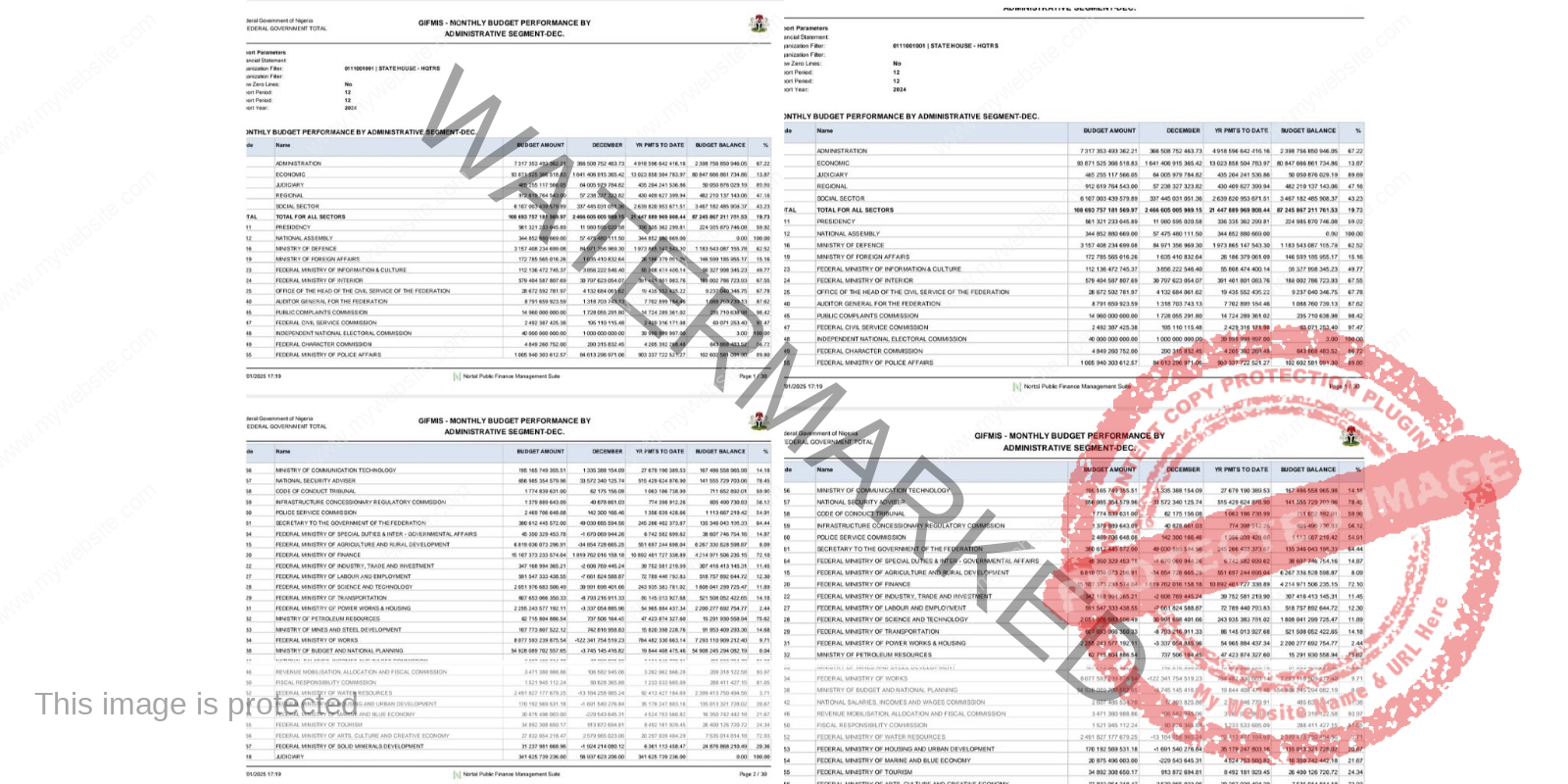


The Tinubu administration’s expenditure of N3.782 trillion on defense, police, interior, and national security in 2024 has failed to stem the tide of insecurity in Nigeria. Despite this massive spending, Nigerians continue to face alarming levels of violence and displacement across the country.
A breakdown of the expenditure reveals that the Ministry of Defense received N1.973 trillion, the Ministry of Police Affairs got N903.337 billion, and the Office of the National Security Adviser was allocated N515.4 billion. The Ministry of Interior received N391 billion.
In Plateau State, the situation is dire. The Take-It-Back Movement reports 2,218 killings since April 2023. Recent attacks have resulted in over 50 deaths, dozens injured, and more than 40 houses burned. The attack occurred just two weeks after similar violence in Bokkos LGA, which claimed more than 80 lives.
Borno State is also facing significant insecurity. The state governor has raised concerns about losing control to bandits, with Boko Haram terrorists responsible for deadly attacks. At least eight people were confirmed dead after an explosive device detonated on the Damboa-Maiduguri road.
Benue State is another hotspot, with insecurity forcing 300,000 people into makeshift camps. Entire communities have been displaced, with over 2.2 million people nationwide fleeing their homes. Residents in Ondo State have also protested against growing insecurity, including kidnappings and deaths from suspected criminal herders.
Enugu State has also been affected, with protests held against insecurity. Residents have lamented the takeover of homes by rampaging bandits. No fewer than 44 farm settlements have been overrun, with residents forced to flee their homes and seek shelter in neighboring communities.
The humanitarian crisis is severe, with millions displaced and forced to flee their homes. According to the Armed Conflict Location and Event Data (ACLED), Nigeria recorded 9,355 fatalities from “political violence” in 2024.
Experts point to several causes of insecurity in Nigeria. A weak security system, porous borders, unemployment, and poverty are all contributing factors. Ethno-religious conflicts and the loss of socio-cultural values also play a significant role.
To address insecurity, the government needs to adopt a holistic approach. Strengthening security institutions, addressing poverty and unemployment, promoting ethno-religious harmony, and rebuilding socio-cultural values are all essential.
Increasing recruitment of security personnel, adopting the Borno model of civilian joint task forces, and building up intelligence networks are also proposed solutions. International cooperation with countries like the US, France, and Israel could enhance Nigeria’s military capabilities.
The government must prioritize security and take concrete steps to address the root causes of insecurity. Citizens also have a role to play in promoting peace and stability in their communities.
By working together, Nigerians can build a safer and more secure future. The government needs to be proactive and responsive to the security needs of its citizens.
The situation demands urgent attention, and the government must take bold steps to address the security challenges facing the nation. The fate of millions of Nigerians hangs in the balance, and it is imperative that the government acts swiftly to restore peace and stability.
Insecurity is a complex issue that requires a multifaceted approach. The government, security agencies, and citizens must work together to address the root causes of insecurity.
The government needs to be held accountable for its actions, and citizens must demand more effective security measures. Only through collective effort can Nigeria overcome its security challenges and build a brighter future for its citizens.
The Tinubu administration’s inability to stem insecurity despite massive expenditure raises questions about the effectiveness of its security strategy. A new approach is needed to address the complex security challenges facing the nation.
In conclusion, Nigeria’s security situation remains dire, with insecurity persisting despite massive spending. The government must adopt a holistic approach to address the root causes of insecurity and promote peace and stability.
The way forward is clear: the government, security agencies, and citizens must work together to build a safer and more secure future for Nigeria. With collective effort and determination, Nigeria can overcome its security challenges and build a brighter future for its citizens.










